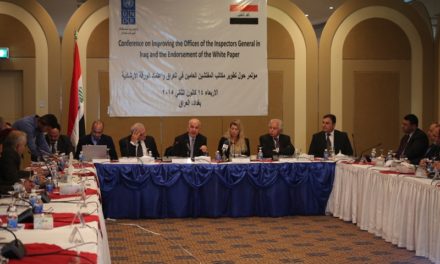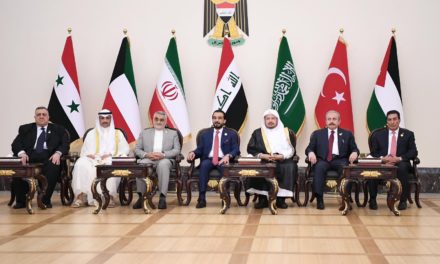The fight against ISIL continues and Iraq’s brave are on the offensive against the world’s most brutal terrorist organization. The Iraqi Army and Popular Mobilization Units are reclaiming land taken by the terrorists two years ago. To ensure human rights abuses are minimized and to renew the focus on the humanitarian aid role the anti-ISIL fighters hold, Grand Ayatollah Sayyid ‘Ali al-Sistani has issued a twenty-point code of conduct last year. As Iraqi forces prepare to retake the city of Fallujah, Ayatollah Sistani reiterated his call for humane treatment of civilians and even captured enemy fighters.
[Translated by Dr. Ahab Bdaiwi]
- God has called for Jihad and has privileged the warriors. It is necessary, then, to learn these conditions and etiquettes of jihad thoroughly.
- Do not indulge in acts of extremism, do not disrespect dead corpses, do not resort to deceit, do not kill an elder, a child, a woman.
- Pay heed to the example of Imam Ali and follow his path. He said, “Set your sights on the Family of the Prophet. Make them proud.”
- Be attentive to the sanctity of the human souls! Never should you do to them something that God has not deemed permissible.
- Be attentive to the sanctity of the lives of those who do not fight: the weak, children, women. Even the families of those who fight you.
- Do not condemn others to heresy. Do not accuse them of blasphemy that could then lead to their death. Do not imitate the Kharijites.
- Never inflict harm on non-Muslims, regardless of their religion and sect. The non-Muslims are under the protection of the Muslims. In fact the Muslim must protect his non-Muslim neighbours in the same manner and vigour as he would when he protects his own family.
- Do not steal the money of others. Those who steal from others will find themselves seated in the flames of the fires of hell.
- Do not disrespect the corpses of the dead, and if you defeat the men of your enemies do not violate the sanctity of their women and houses. Do not enter their [defeated enemies] homes. Do not take anything from their houses. Take only what you find in their military encampments. Do not verbally abuse their women. Do not insult their honour, even if your enemies abuse your women and insult your honour.
- Do not deprive any people, who do not fight you, of their rights.
- Know that most of those who fight you are victims who have been led astray by others. Let your righteous actions, your just conduct, and your sound admonition, serve as an example for them. Do not resort to oppression.
- Corruption can only be cured by justice.
13 It may be the case that when you adhere to good conduct and discipline you suffer losses. This, nevertheless, is more spiritually rewarding.
- Be the guardians and admonishers of those who accept you, so that in the end they will support you against your enemies. Help the weak among them however you can. They are your brothers and your family. Show compassion towards them like you do with your own.
- Do not let anything take precedence over your obligatory prayers. Prayer is the means through which man humbles himself before God.
- Remember God at all times. Recite passages from the Qurʾan. Remember that one day you will stand before Him.
- Strive to act in the same righteous manner as the Prophet and his progeny, peace be upon them, in times of war and peace. Be the good example that Islam deserves. This is the religion that was built on illumination, reason, and good manners.
- Do not be haste in situations where caution is required. Do not undertake an action that will be the cause of your spiritual perdition.
- Advise each other. You will not find better advice than that which you offer each other. Unite, come together and overlook your differences.
- Everyone must let go of sentiments that carry hatred and bigotry. Follow the noble manners. Do not be overcome by narrow-minded views.










